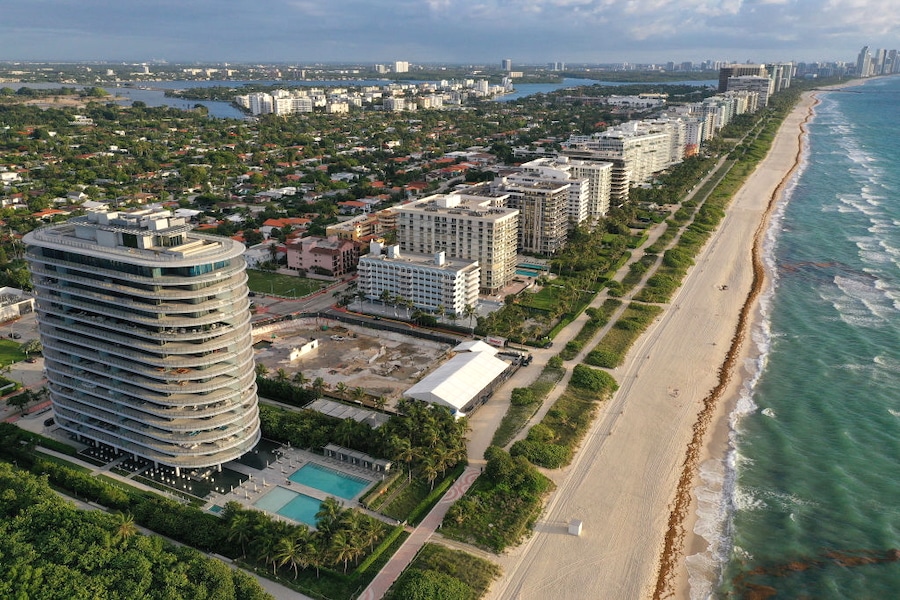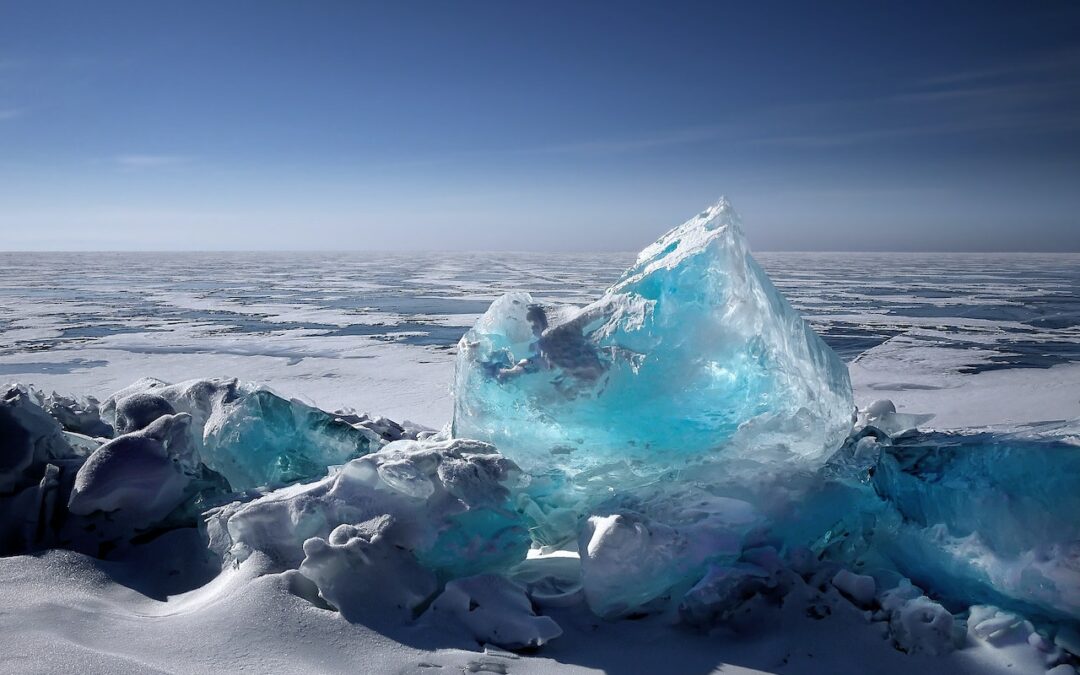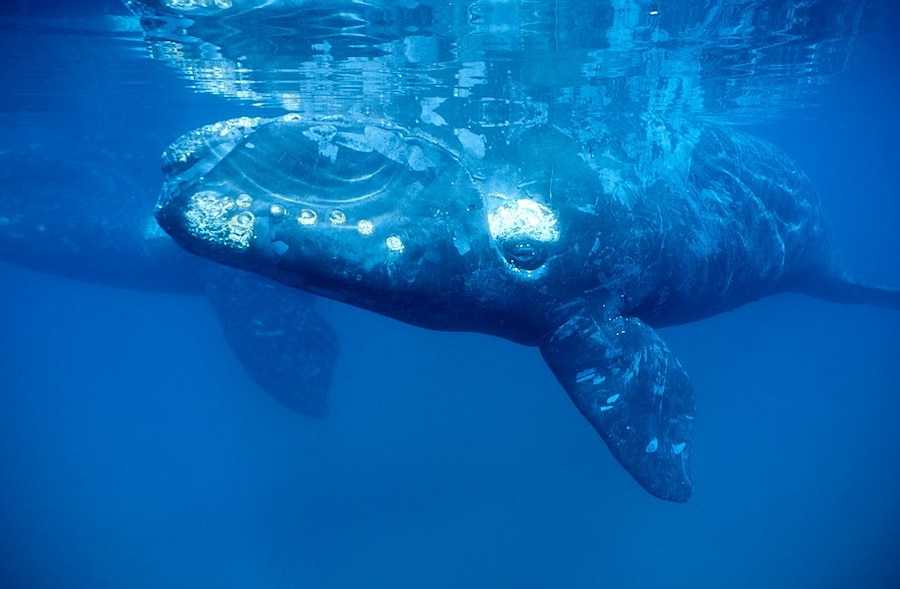
by Komoneed | Dec 26, 2024
A team of scientists in Germany and the United States has found that many tall, heavy buildings along South Florida’s coast are sinking into the earth much faster than expected. The researchers compared several years of satellite images to glean more information about continuing subsidence — where the altitude of a piece of land becomes […]
The post South Florida’s Beachfront Buildings Sinking Faster Than Expected, Research Finds appeared first on EcoWatch.

by Komoneed | Dec 26, 2024
Air-drying clothes in the summer is quite simple, hanging shirts and linens on picturesque laundry lines in the dry, warm air. When winter comes with its cold, wet days, it’s hard to imagine the line full of laundry in the backyard — but winter weather doesn’t necessarily mean it’s time to start tumble-drying again. Drying […]
The post Air-Drying Clothes in Winter? Yes, It’s Possible appeared first on EcoWatch.

by Komoneed | Dec 26, 2024
Assessment of a Pilot Payment for Environmental Services Project in the Dominican Republic and Recommendation for a National Program
jschoshinski
Tue, 12/24/2024 – 21:18
A pilot project for payments for environmental services (PES) began in 2011 in the Yaque del Norte River Basin, the largest watershed in the Dominican Republic. This project was implemented by the Ministry of Environment and Natural Resources. A water utility and a parastatal hydropower generation utility agreed to make voluntary, multiyear commitments for payments to private landholders for conservation of unmanaged forests and shade-grown coffee parcels.
The Ministry covered the administrative costs of the PES payments and provided technical guidance. The USAID-funded Fiscal Accountability and Sustainable Trade (FAST) Activity assessed the pilot’s public financial management practices, efficiency, effectiveness, equity, and financial sustainability and provided recommendations for a future national PES program. The payments for environmental services are provided to upland farmers who agree to conserve natural forest on their land or establish trees for coffee agroforestry. The conserved forest and established trees sequester carbon.
Join us on January 15, 2025, at 10:00am ET for a discussion of lessons learned from the pilot project and recommendations for a national program.
Event Date
Wednesday, January 15, 2025, 3:00
– 4:00 pm UTC
Advanced registration required
Off
External Link
Register Here
Event Format
Virtual
Event Type
Webinar/Presentation
Topic
Agriculture
Natural Resource Management
Water Management
Strategic Objective
Mitigation
Sectors
Natural Resource Management
Region
Latin America & Caribbean
Add to calendar
Add to Calendar
2025-01-15 15:00:00
2025-01-15 16:00:00
Assessment of a Pilot Payment for Environmental Services Project in the Dominican Republic and Recommendation for a National Program
A pilot project for payments for environmental services (PES) began in 2011 in the Yaque del Norte River Basin, the largest watershed in the Dominican Republic. This project was implemented by the Ministry of Environment and Natural Resources. A water utility and a parastatal hydropower generation utility agreed to make voluntary, multiyear commitments for payments to private landholders for conservation of unmanaged forests and shade-grown coffee parcels.
The Ministry covered the administrative costs of the PES payments and provided technical guidance. The USAID-funded Fiscal Accountability and Sustainable Trade (FAST) Activity assessed the pilot’s public financial management practices, efficiency, effectiveness, equity, and financial sustainability and provided recommendations for a future national PES program. The payments for environmental services are provided to upland farmers who agree to conserve natural forest on their land or establish trees for coffee agroforestry. The conserved forest and established trees sequester carbon.
Join us on January 15, 2025, at 10:00am ET for a discussion of lessons learned from the pilot project and recommendations for a national program.
Global Climate Change
team@climatelinks.org
UTC
public

by Komoneed | Dec 26, 2024
Scientists have estimated that bowhead whales — the longest-living whale species — can live more than 200 years. It was once thought that the bowhead’s cousin, the right whale, had an average lifespan of about 70 to 80 years, but new research has revised that estimate to more than 130 years — nearly twice as […]
The post Right Whales Can Live 130 Years or Longer, Research Finds appeared first on EcoWatch.

by Komoneed | Dec 26, 2024
Climatelinks 2024 Year in Review: Blogs You May Have Missed
jschoshinski
Thu, 12/19/2024 – 17:25
Climatelinks’ blogs synthesize knowledge, tools, lessons learned, and best practices that are relevant for climate change and development practitioners. Here are a few insightful blogs you may have missed in 2024:
Empowering Jordan’s Youth for Water Conservation and Efficiency
USAID/Jordan seeks to increase the meaningful participation of the country’s youth aged 10-29 within their communities and the national economy, and one potential area for engagement is water conservation. The USAID Water Efficiency and Conservation (WEC) Activity is empowering young leaders to use their innovative solutions and dedication to tackle the challenge of water scarcity. By working with the Jordanian Association for Boy Scouts and Girl Guides, WEC aims to save at least 300,000 cubic meters of water annually.
Mobilizing Climate Finance to Strengthen Trade and Investment on the African Continent
The Prosper Africa-USAID partnership is a national security initiative that aims to increase two-way trade and investment between the United States and African countries. It recognizes the potential of climate finance and helps African governments, businesses, and smallholder farmers transition to sustainable, productive, and profitable approaches. In addition, the partnership seeks to identify new opportunities for private-sector partners to play a landmark role in green initiatives.
Measuring Adaptation: Increasingly Necessary but Not Always Easy
Climate adaptation encompasses many approaches, from building physical structures to behavior-change investments such as altering the time of planting a crop. With the increasing flows of adaptation finance comes a greater need to track how adaptation activities support climate resilience to ensure financing is effective. Although there is no “one size fits all” approach to measuring adaptation, some underlying principles can help determine the most appropriate metric.
USAID’s YALI Alumni are Using Technology to Fight Climate Change
The joint USAID and U.S. Department of State Young African Leaders Initiative (YALI) supports African leadership and entrepreneurship skills development. A number of YALI members are creating innovations that pave the way for the utilization and development of new technologies designed to mitigate the negative impacts of a changing climate. To foster and encourage more climate- and tech-related leaders within the YALI alumni group, a three-week training program included masterclasses led by climate and environment industry experts.
Grassroots Project Jumpstarts Conservation Efforts in Mexican Countryside
In El Carrizal, Queretaro, Mexico, a Peace Corps Small Project Assistance grant funded by USAID/Mexico was used to construct rainwater collection cisterns, install solar hot water heaters, build dry composting toilets, and create numerous educational ecotourism signs. The project seeks to employ various eco-techniques and technologies to advance environmentally conscious best practices. It also emphasizes ecotourism as a sustainable development concept to boost the local economy and preserve the wilderness conservation area.
Do you have an idea for a Climatelinks blog? We would love to hear from you! Learn about the types of blogs we accept and how you can submit.
Teaser Text
Climatelinks’ blogs synthesize knowledge, tools, lessons learned, and best practices that are relevant for climate change and development practitioners. Here are a few insightful blogs you may have missed in 2024.
Publish Date
Thu, 12/19/2024 – 12:00
Author(s)
Jamie Schoshinski
Hero Image
Scout-Gudies_School
Blog Type
Blog Post
Strategic Objective
Adaptation
Integration
Mitigation
Region
Global
Topic
Adaptation
Biodiversity Conservation
Climate Change Integration
Climate Finance
Digital technology
Clean or Renewable Energy
Infrastructure
Locally-Led Development
Private Sector Engagement
Resilience
Training
Water Management
Youth
Sectors
Climate
Show Download Link
On





